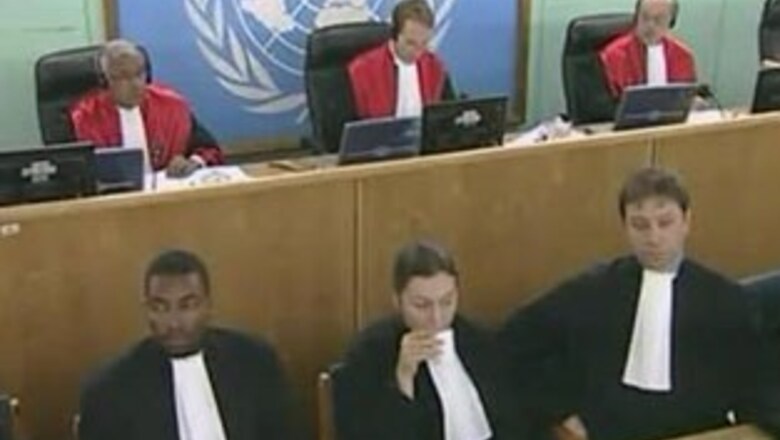
views
Kigali: A U.N. court sentenced a former army colonel accused of masterminding the slaughter of 800,000 people in Rwanda in 1994 to life in prison on Thursday.
The Tanzania-based International Criminal Tribunal for Rwanda (ICTR) had accused Theoneste Bagosora, 67, of being in charge of the troops and Interahamwe Hutu militia who butchered 800,000 minority Tutsis and moderate Hutus in 100 days.
"Colonel Bagosora is guilty of genocide and crimes against humanity and war crimes," the court said. Prosecutors said Bagosora, then cabinet director in the Defence Ministry, assumed control of military and political affairs in the central African country after President Juvenal Habyarimana was killed when his plane was shot down.
Canadian General Romeo Dallaire, head of United Nations peacekeepers during the genocide, described Bagosora as the "kingpin" behind the genocide and said the colonel had threatened to kill him with a pistol.
"It is very good that he has been finally convicted. It should carry a strong message to all those who want to repeat such acts. They should know that they can never escape justice," said Robert Munyeneza, 25, a builder and genocide survivor.
In its indictment, the court said that before the killings, Bagosora stormed out of peace talks in Tanzania saying he was returning to Rwanda to "prepare the apocalypse". After the genocide, Bagosora fled into exile in Cameroon. He was arrested there in 1996 and flown to face trial in 1997.
His trial began in 2002 and lasted five years until mid-2007. Bagosora faced 11 charges of genocide, war crimes and crimes against humanity. He was acquitted, however, of the charge that he conspired to commit genocide before April 1994.
"The conviction of Mr. Bagosora shows that even those at the highest levels of government are not immune from prosecution in the face of such grave atrocities," U.S. State Department spokesman Sean McCormack said in a statement.
Bagosora was found guilty in connection with the killing of 10 Belgian peacekeepers and responsible for the deaths of the Rwandan prime minister and the head of the constitutional court. He was found responsible for organised killings by soldiers at numerous sites in Rwanda's capital Kigali and in Gisenyi.
Fellow former officers Colonel Anatole Nsengiyumva and Major Aloys Ntabakuze were also sentenced to life for genocide. General Gratien Kabiligi was acquitted of all charges. Defence lawyers said in a statement all three found guilty planned to appeal and the verdict showed their actions were based on war-time conditions, and they had not plotted genocide.
The lawyers said they would be writing to the United Nations Security Council calling for the ICTR to be suspended on the grounds the court had consistently covered up crimes committed by the Rwandan rebel force led by President Paul Kagame.
The ICTR sentenced Habyarimana's brother-in-law Protais Zigiranyirazo, a businessman known as "Monsieur Z", to 20 years for genocide and extermination as a crime against humanity. Zigiranyirazo, 70, was accused of being a member of the Akazu, the small yet powerful ruling elite of Hutu family members and relatives who are believed to have plotted to exterminate the minority Tutsis.
The court began its work in 1997. It has until the end of the year to wind up its activities and until 2010 to hear all appeals. The U.N. General Assembly is discussing whether to extend the court's mandate. "All the other genocidaires still on the run should be brought to justice as soon as possible. That is when the victims will get justice," Chantal Kabasinga, president of the Rwanda Genocide Widows Association.




















Comments
0 comment